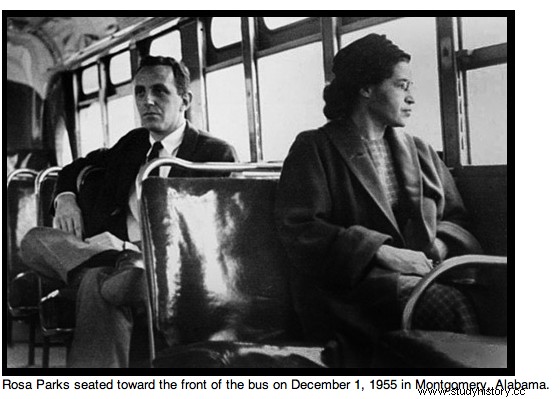 Martin Luther King in Washington (1963). Source:Infobae.
Martin Luther King in Washington (1963). Source:Infobae.
On August 28, the 50th anniversary of the 1963 March on Washington was commemorated. Many people participated in it - an estimated 250,000 - gathered with the aim of demanding a more egalitarian society, free from the chains of racial segregation. and the discrimination suffered by the black population in the United States.
Until the 1960s, racial segregation was practiced in many American states, a policy very similar to that of white South Africa:whites and blacks lived separately , each with its neighborhoods, schools, entertainment venues, etc., differentiated in terms of space and quality. But even more serious was the inequality of civil and political rights:the black population was discriminated against by being denied the right to vote and equality before the law.
This situation generated a movement of rejection that began to take shape at the end of the 1990s. fifties and early sixties in the United States. This was manifested both through individual actions, such as Rosa Parks's refusal to get up from her seat on a bus to hand it over to a white passenger in 1955, conduct that led to her conviction in a court of law, and through collective actions, and, in this sense, the creation of the NAACP (National Association for the Advancement of Colored People ), an organization that promoted the right to vote and the defense of the population of color before the courts. Later it was the churches that led the defense of people of color.
 Source:http://colorlines.com/archives/2010/12/rosa_parks.html
Source:http://colorlines.com/archives/2010/12/rosa_parks.html
In this context, the Civil Rights Movement in the United States was taking shape and, within it, the figure of Martin Luther King, pastor of the Baptist church, soon gained relevance.
In the aforementioned march, Martin Luther King gave an emblematic speech for the defense of the rights of the North American black population, all of it synthesized in the famous phrase I have a dream (I have a dream). It was a speech that denounced the situation of the black population and demanded equality, freedom and fraternity -the same postulates that encouraged the French Revolution of 1789-. It was inspired by the moral values of all humanity, in the illusion of an integrated and fair society for all, not only for blacks. He also exposed the need for a peaceful, non-violent struggle. It was a powerful speech, which expressed, with great oratorical and literary quality, ideas that permeated broad social sectors, even beyond the black population.
http://www.ivoox.com /player_ej_51182_1.html
Martin Luther King was assassinated by a white man in 1968, but his message remained and some have wanted to see in the presidency of Barack Obama the realization of that dream.
However, there is still a long way to go. Although legal discrimination has disappeared, the enormous economic and social inequalities between the white population and the black population continue to survive. Inequalities that have even increased as a result of the current economic crisis. And there are unflattering details:the commemoration held on August 28 was not attended by any Republican president.
The following journalistic report informs us about the commemoration of the act and the speech.
//www.youtube.com/get_playerSource:Weekly Report. RTVE.
